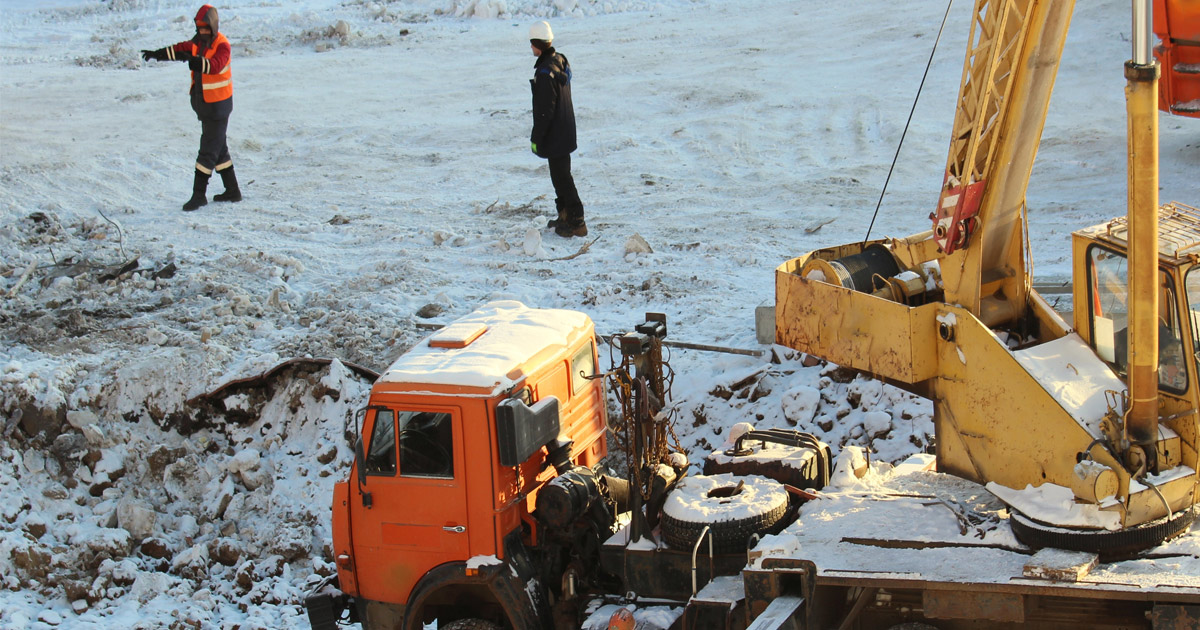The wintertime weather can get very cold in the Mid-Atlantic states and Northeastern United States. Lows routinely dip below freezing and commonly dip down into the teens or worse. Also, snowfall could become heavy at times.
The human body reacts differently to cold work conditions than it does to warm work conditions. Pulled muscles, strained backs, and slip and fall injuries all could increase because of colder working conditions during the winter. That is especially true of jobs that require significant time spent working outside during the winter.
Be Wary of Winter Weather Threats
No matter what your occupation might be, when you work outdoors in cold weather, you literally are risking life and limb. There are three primary threats to workers’ health during the winter. Those threats are:
- Cold-related illness
- Cold-related injury
- Cold stress
Hypothermia is the deadliest of cold-related illness and happens with the core body temperature drops. Hypothermia affects how body organs function and how you think. Sign of hypothermia include uncontrollable shivering and numbness in the extremities.
Frostbite is an example of cold-related injury and could result in a partial amputation of appendages. Frostbite occurs when the body becomes very cold and restricts blood flow to the extremities. Fingers and toes are especially vulnerable and could turn black. The ears and nose also are especially vulnerable to frostbite.
Trench foot is another cold-related injury that could affect workers during the wintertime. Trench foot happens when the feet get cold and wet. Your body will restrict the blood vessels in your foot and shut off the blood flow. That can lead to the death of skin cells and literally cause your feet to rot. Fortunately, trench foot usually is limited to extreme situations, such as military service in cold and wet climates.
Cold stress is potentially very dangerous and happens whenever there is a significant drop in temperature at outdoor worksites. Whenever the temperature drops about 40 degrees, workers experience cold stress. Their bodies are not acclimated to the colder weather, and many might be ill equipped for working in colder weather.
OSHA Says Employers Must Address Wintertime Hazards
The U.S. Occupational Safety and Health Administration (OSHA) does not have special regulations for wintertime work conditions. However, it does require employers to do their best to prepare workers for wintertime weather and the special work hazards that occur.
OSHA says job providers can help to protect workers by properly equipping them and training them for working safely in winter weather. OSHA says job providers must train workers in dealing with cold stress. The training should include knowing the signs of cold stress illnesses or injuries in yourself or your coworkers and how to provide first aid.
In addition, OSHA says job providers must train workers in how to deal with the special work conditions that could arise during winter. Slip and fall accidents and driving hazards are especially important during winter weather. Employers must provide workers with the correct equipment to work safely under wintery conditions.
OSHA recommends employers provide radiant heaters to warm outdoor work areas and train workers in selecting to correct gear to protect themselves against the cold. Using de-icing substances can help to reduce workplace injuries. Also important is communicating with workers and ensuring none are showing signs of injury or illness from the colder weather.
OSHA affirms that working outdoors during the wintertime is especially risky and requires special care. The following can help you to stay relatively warm while preventing wintertime hazards while working.
Dress in layers. Layered clothing is the best shield against freezing cold temperatures. Thermal undershirts and underpants can help to create a layer of warmth underneath your clothing. A flannel shirt, sweatshirt, and winter coat will add to the layers. Every layer creates a pocket of warm air that helps to keep the bitter cold winter winds and temperatures away from your vital organs.
Keep your feet warm. You need warm and dry feet to stay healthy and not succumb to the cold. Warm and dry feet do not suffer from trench foot. Warm and dry feet also help to keep the rest of your body feeling relatively comfortable in less-than-comfortable winter temperatures. You should wear quality boots that insulate your feet and repel water. When boots are combined with a good pair of thick and warm socks, your feet can stay relatively comfortable throughout a hard day’s work.
Wear a winter hat and gloves. An uncovered head gives off a lot of heat and makes it much easier to suffer from hypothermia. Also, your hands can become painfully cold if your body starts drawing blood away from your extremities to warm your body core. You should wear a knitted cap or other insulated cover for your head. If you have a winter coat with an insulated hood, that can do a great job of protecting your ears and neck against the cold winter winds.
Protect exposed skin. If you work outside for extended periods in cold wind and weather, you need to protect exposed skin. Your cheeks, chin, ears, and fingers are vulnerable to wind and cold stress. A scarf or insulated mask can help to protect your face, ears, and nose against the cold. A scarf can protect your neck and face, while gloves or leather mittens help to keep your hands and fingers warm while working in winter weather.
Drink hot liquids and take breaks in warm spots. Your employer should provide additional breaks and create warm areas with radiant heaters or other heat sources that effectively warm the body. Hot chocolate, coffee, and hot tea are examples of good, hot beverages that can help to warm your body and fight off the cold. Alcohol should not be used at any time and especially while working.
Watch for slip and fall hazards. Longer nights and colder weather elevate the potential for slip and fall accidents to occur. You need to wear good boots or shoes that can keep your feet warm in cold weather while maximizing traction for your feet. When you are rounding a corner, do so carefully because you do not know what the conditions are in blind spots or darkened areas.
Drivers need to be extra careful. Winter weather makes driving particularly dangerous with worsened road conditions and potentially damaging effects on vehicles. If you drive a work truck, that truck should have good tires with plenty of traction and good brakes to make stopping safer. The lights all should work, and the heater needs to blow hot air to ensure you can stay warm while driving.
Workers’ Compensation for Winter-Related Injury or Illness
If you suffer from injuries or illnesses caused by cold stress while working, workers’ compensation coverage should apply. But some employers or workers’ compensation insurers might contest compensation that workers should receive. If that happens to you, an experienced workers’ compensation lawyer could help to hold your employer responsible.
Building and presenting a strong case could help you to collect your due compensation. That includes documenting worksite conditions and the weather. A doctor could help to determine whether you caught an illness because of work or suffered bodily injury from wintertime work conditions.
With a strong case documented and presented well, it is possible to gain denied compensation. However, if your employer or its insurer continues to fight duly earned workers’ compensation, state or federal lawsuits could help to hold them accountable and possibly earn punitive damages.
Cherry Hill Workers’ Compensation Lawyers at Pietras Saracino Smith & Meeks, LLP, Help Injured or Sick Workers
Wintertime work could cause injuries or illnesses for ill-prepared workers. If you are injured or became ill because of wintertime work conditions and were refused workers’ compensation, the Cherry Hill workers’ compensation lawyers at Pietras Saracino Smith & Meeks, LLP, can help. We will be your advocate to secure the compensation for which you are entitled. Call us today at 856-761-3773 or contact us online to schedule a free consultation. Located in Cherry Hill, New Jersey, we serve clients in Camden, Cinnaminson, Delran, Maple Shade, Pennsauken, and throughout South Jersey.













